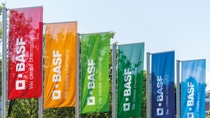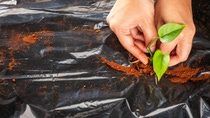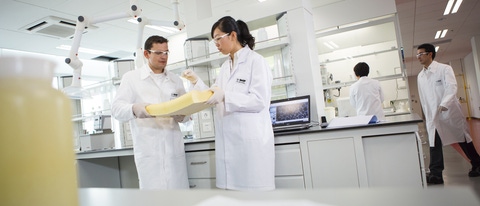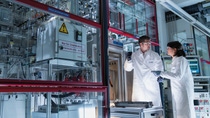Who we are
Innovate with us!
BASF chemistry spans 10,000 R&D employees world wide, 280 universities and over 78,000 customers. We strive to be your partner of choice in Sustainable Innovation. Join our network of innovators!
Make a new bond with BASF - The Chemistry of Collaboration
Collaboration is about Connection, Connection is about people. Who or what can we help you find? #Letscreatechemistry
What type of bond are you looking for?
Related News Releases:
Date
Results: 2088
Sustainability drives mobility: BASF produces AdBlue GE with 100 percent green electricity
BASF is launching AdBlue® GE (Green Electricity) by BASF, a new product that is produced entirely with electricity from renewable sources. This reduces CO2 emissions in the manufacturing process compared to conventionally produced AdBlue and improves the CO₂ footprint.

Advance Notice: Annual Press Conference on February 27, 2026, at 10.30 a.m. (CET)
On Friday, February 27, 2026, the Annual Press Conference of BASF SE will be held in Ludwigshafen, Germany. From 10.30 a.m. (CET) BASF’s Chairman of the Board of Executive Directors Dr. Markus Kamieth and Chief Financial Officer Dr. Dirk Elvermann will present the 2025 financial results. The conference will be transmitted via the internet.
BASF supports European BDO supply security through increased production in Ludwigshafen
BASF’s Intermediates division is taking decisive steps to further strengthen supply security for its European customers in the 1,4‑butanediol (BDO) value chain.
BASF to further strengthen Global Business Services through global Hub setup
BASF advances the transformation of its Global Business Services organization, aiming to take the next step to secure long-term cost competitiveness, resilience, and consistent service delivery for its businesses worldwide.

At Plastindia 2026, BASF showcases how light stabilizers extend the durability of plastics across industries
India is among the top producers of several crops and second highest producer of fruits and vegetables globally. For farmers, plasticulture technologies, the use of plastics in agriculture, have been proven to boost productivity and profitability by conserving water, increasing yields, and protecting both crops and the environment.









